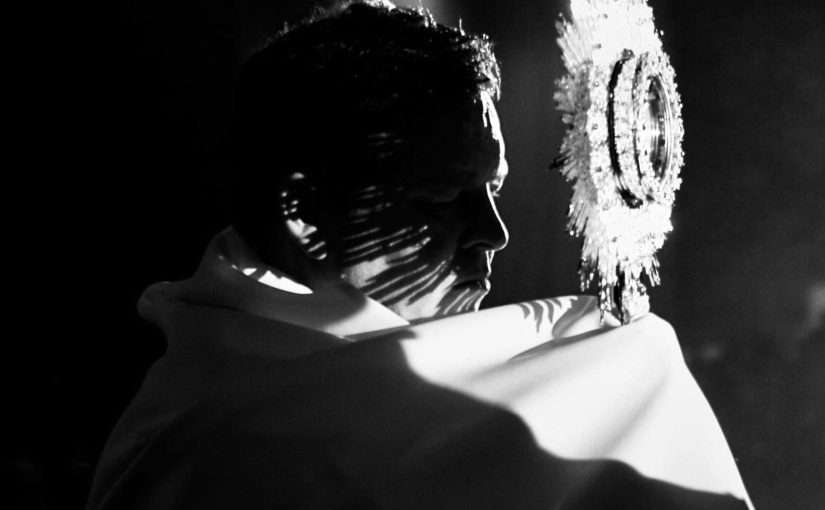Para la versión en español haz clic aquí.
Introduction
The debate over “Roman Catholic vs. Christian” is one that has intrigued believers and scholars for centuries. While Roman Catholics identify as Christians, many people, especially those new to religious study, often wonder about the distinctions between these two terms. Are Roman Catholics and Christians the same? What are the key theological, doctrinal, and historical differences between them?
In this article, we will explore the relationship between Roman Catholicism and broader Christianity, highlighting their similarities and differences. By the end, you will have a clearer understanding of how Roman Catholicism fits within the Christian faith and why some people perceive them as separate.
What Does It Mean to Be Christian?
To properly compare Roman Catholicism vs. Christianity, we must first define what it means to be Christian. A Christian is anyone who follows Jesus Christ and adheres to His teachings. Christianity is rooted in the life, death, and resurrection of Jesus Christ, as documented in the Bible.
Christianity is broadly divided into major branches, including:
- Roman Catholicism
- Protestantism (e.g., Baptists, Lutherans, Methodists, Evangelicals, etc.)
- Eastern Orthodoxy
Roman Catholicism is the largest Christian denomination, claiming over 1.3 billion followers worldwide. However, many Protestant and evangelical Christians make a distinction between “Catholic” and “Christian,” often due to theological and doctrinal differences.
Roman Catholicism: A Branch of Christianity
The Roman Catholic Church traces its origins to Jesus Christ and the apostles, particularly Saint Peter, whom Catholics consider the first Pope. The Church is headquartered in Vatican City, with the Pope serving as its supreme leader.
Roman Catholic beliefs are based on the Bible, Sacred Tradition, and the Magisterium (the teaching authority of the Church). Some distinct beliefs and practices of Roman Catholicism include:
- Authority of the Pope: Catholics believe that the Pope is the Vicar of Christ on earth and holds supreme authority over the Church.
- Sacraments: Roman Catholicism recognizes seven sacraments (Baptism, Eucharist, Confirmation, Reconciliation, Anointing of the Sick, Holy Orders, and Matrimony).
- Veneration of Saints and Mary: Catholics honor saints and the Virgin Mary, asking for their intercession in prayer.
- Apostolic Succession: The belief that Catholic bishops trace their authority back to the apostles through an unbroken line of succession.
- Purgatory: The doctrine that souls undergo purification before entering heaven.
Despite these unique beliefs, Roman Catholics firmly identify as Christians, adhering to the foundational Christian doctrines of the Trinity, Jesus’ divinity, and salvation through Christ.
Key Differences Between Roman Catholicism and Other Christian Groups
While Roman Catholicism is a major branch of Christianity, several key theological differences set it apart from other Christian denominations. Let’s explore some of the main distinctions.
1. Authority: The Bible vs. Church Tradition
- Roman Catholics believe in the authority of Sacred Tradition alongside the Bible, meaning that Church teachings passed down over centuries hold as much weight as Scripture.
- Protestant Christians adhere to “sola Scriptura” (Scripture alone), meaning they view the Bible as the sole authority for Christian faith and practice.
2. Salvation: Faith vs. Works
- Roman Catholicism teaches that salvation comes through faith and good works, including participation in sacraments.
- Many Protestant Christians believe in “sola fide” (faith alone), asserting that salvation is granted by faith in Christ, apart from works.
3. The Role of the Pope
- Catholics recognize the Pope as the highest earthly authority and believe in papal infallibility in matters of faith and morals.
- Other Christian groups reject papal authority, arguing that Christ alone is the head of the Church.
4. Worship and the Eucharist (Holy Communion)
- Catholics believe in transubstantiation, meaning that during the Eucharist, the bread and wine become the actual body and blood of Christ.
- Protestants generally see Communion as symbolic, rather than a literal transformation.
5. Veneration of Mary and Saints
- Roman Catholics honor the Virgin Mary as the “Mother of God” and pray for the intercession of saints.
- Protestants generally avoid veneration of Mary and saints, believing that worship and prayer should be directed to God alone.
6. The Concept of Purgatory
- Catholics believe in purgatory, a place of temporary purification for souls before entering heaven.
- Protestants typically reject purgatory, teaching that believers go directly to heaven or hell after death.
Conclusion: Roman Catholic vs. Christian – Are They the Same?
The phrase “Roman Catholic vs. Christian” is somewhat misleading because Roman Catholics are Christians. However, the key distinctions in doctrine, authority, and worship practices have led to centuries of debate and division within Christianity.
Ultimately, whether someone identifies as a Roman Catholic or another type of Christian, the foundation of their faith should rest in Jesus Christ, His teachings, and His sacrifice for humanity. Recognizing the differences while respecting each tradition can lead to a greater understanding of the diverse and rich history of Christianity.
Whether you are Catholic, Protestant, or simply exploring faith, the most important question remains: Do you have a personal relationship with Jesus Christ?
—
If you found this article helpful, feel free to share it! Have questions or thoughts? Leave a comment below!
